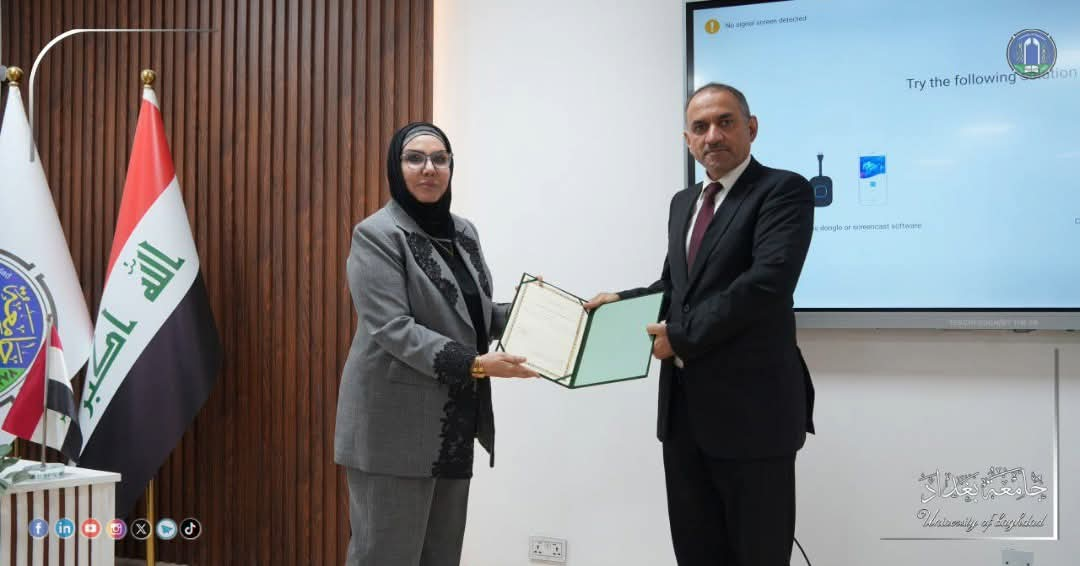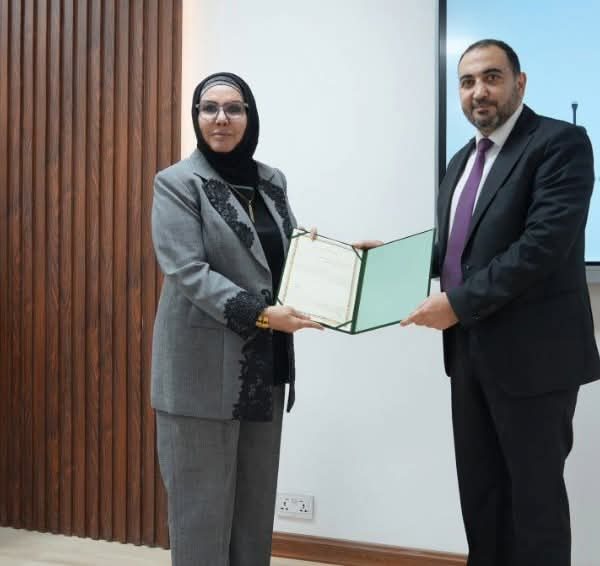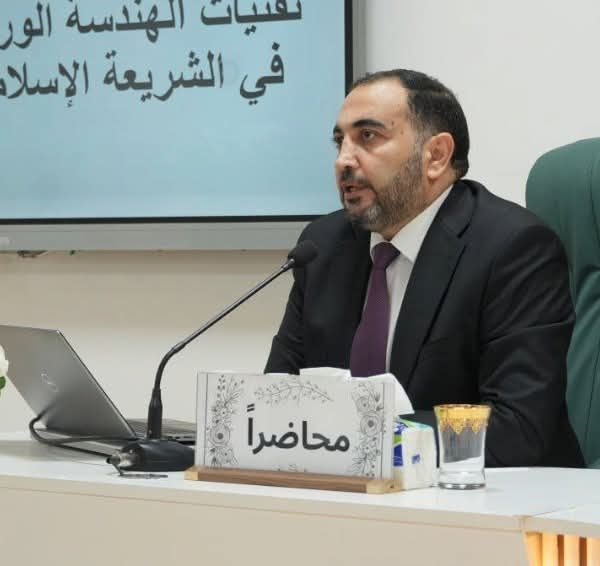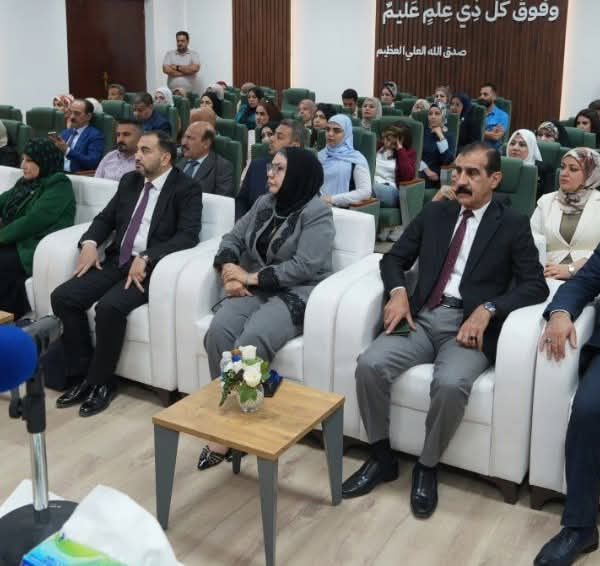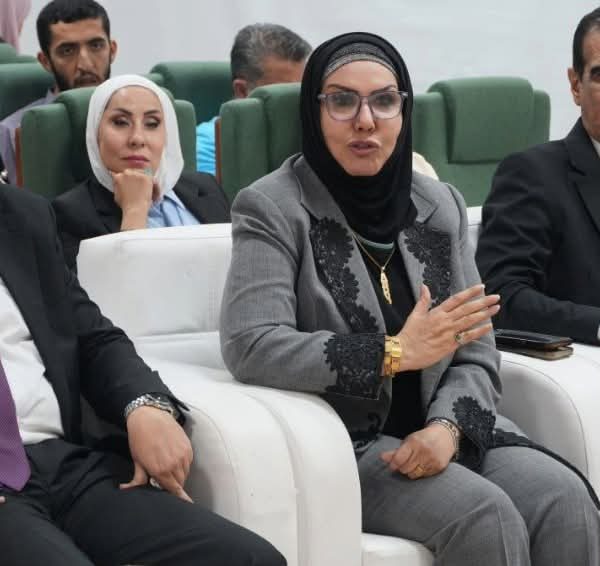The Dean of the College of Law at the University of Baghdad, Professor Dr. Ali Hadi Atiya, and the Associate Dean for Administrative Affairs, Assistant Professor Dr. Harith Ali Ibrahim, participated in a scientific symposium organized by the Institute of Genetic Engineering and Biotechnology for Postgraduate Studies, titled: “Legal and Sharia Perspectives on Genetic Engineering.”
The symposium was attended by the Institute’s Dean, Professor Dr. Salwa Jabir Al-Awadi, the Dean of the Laser Institute for Postgraduate Studies, Professor Dr. Kazem Abdulwahid Adam, along with researchers and postgraduate students.
The symposium aimed to discuss the legal and Sharia dimensions of the rapid developments in the field of genetic engineering and to work toward creating a balance between scientific advancement and the protection of human and ethical values, ensuring the responsible use of modern biotechnological techniques.
In the first session, Professor Dr. Ali Hadi Atiya presented the legal framework of genetic engineering, addressing national and international laws governing genetic research and mechanisms for regulating genetic experiments. He emphasized the importance of developing Iraqi legislation that keeps pace with scientific advancement, protects human rights, and sets strict regulations for safeguarding genetic data and preventing its misuse.
Meanwhile, Assistant Professor Dr. Harith Ali Ibrahim delivered the second session, which explored the Sharia perspective on genetic engineering, reviewing jurisprudential positions regarding gene manipulation in humans, animals, and plants. He stressed the necessity for scientific research to align with the objectives of Islamic law in preserving life, intellect, and lineage, and for genetic applications to focus on preventing harm and achieving benefit.
The symposium concluded with recommendations to update Iraqi legislation related to genetic research in accordance with international standards, enhance cooperation among scientific, Sharia, and legal institutions to establish unified regulations for the safe use of genetic technologies, and incorporate academic courses on professional ethics into relevant educational programs.

